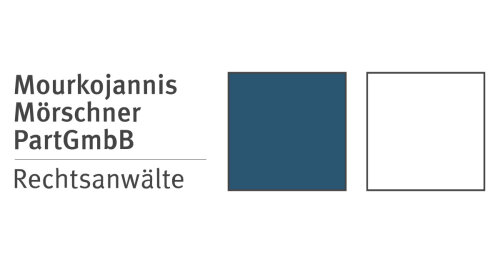Best Creditor Lawyers in Germany
Share your needs with us, get contacted by law firms.
Free. Takes 2 min.
Or refine your search by selecting a city:
List of the best lawyers in Germany
About Creditor Law in Germany
Creditor law in Germany is a complex area of the legal system that deals with the rights and obligations of creditors, individuals, or entities that are owed money. The process includes the legal frameworks that govern how creditors can collect debts, the procedures for insolvency, and the enforcement of claims. German creditor law aims to balance the rights of creditors to recover debts while protecting debtors from unfair practices. It is tightly integrated with the debt enforcement laws and the insolvency proceedings, offering structured processes to manage outstanding debts and claims.
Why You May Need a Lawyer
Several situations may require individuals or companies to seek legal advice in creditor matters in Germany:
- Enforcement of Debt: If a debtor is not repaying a debt, a creditor may need legal assistance to enforce the claim through court proceedings.
- Insolvency Proceedings: Legal advice is crucial when a debtor enters insolvency to ensure creditors' claims are properly filed and managed.
- Debt Claims Defense: A debtor facing unjust claims might need a lawyer to defend against aggressive creditor actions.
- Negotiations and Settlements: Lawyers can assist in negotiating terms or settlements between creditors and debtors.
- Cross-Border Debt Issues: Complexities increase when dealing with international debtor-creditor scenarios, necessitating expert legal guidance.
Local Laws Overview
German creditor law is delineated in several legal codes, including the Civil Code (BGB), the Code of Civil Procedure (ZPO), and the Insolvency Code (InsO). Key aspects include:
- Debt Collection Procedures: Under the ZPO, creditors can seek legal recourse through 'Mahnbescheid' (demand for payment) and subsequent enforcement actions ('Zwangsvollstreckung').
- Insolvency Proceedings: The InsO governs insolvency, ensuring an orderly process for settling claims and liquidating assets if necessary.
- Rights of Secured vs. Unsecured Creditors: Secured creditors typically have a higher priority over unsecured creditors during debt recovery processes.
- Consumer Protection Laws: Provisions promote fair treatment of debtors, protecting them from unfair collection practices.
Frequently Asked Questions
What is the first step a creditor should take if a debtor fails to pay?
The creditor should initially request payment directly from the debtor and can issue a formal ‘Mahnbescheid’ if payment is not made.
How does the insolvency process work in Germany for creditors?
Creditors must register their claims with the insolvency administrator. The claims are then evaluated and potentially satisfied according to priority and available assets.
Can a creditor recover a debt if the debtor declares insolvency?
In many cases, creditors can only recover a portion of the debt based on the debtor's asset liquidation during insolvency proceedings.
Are there any time limits for creditors to claim debts in Germany?
Yes, typically, the statute of limitations for debt claims is three years from the end of the year in which the claim arises, though this can vary.
What legal actions are available to a creditor if a debtor disputes the debt?
If a debtor disputes a claim, the creditor can file a lawsuit to obtain a court ruling to enforce the debt payment.
What is a ‘Zwangsvollstreckung’?
‘Zwangsvollstreckung’ refers to the enforcement process where a creditor seeks court assistance to confiscate the debtor's assets or wages.
How is a debt collection agency different from a lawyer in handling debts?
Debt collection agencies can often pursue debt informally through negotiations, but they don't have the authority to commence legal proceedings, which only lawyers can do.
What are secured creditors allowed to do that unsecured creditors can't?
Secured creditors can claim specific debtor assets tied to their loan or credit agreement, providing them preferential treatment in insolvency proceedings.
Is there a way for a creditor to intervene in ongoing insolvency proceedings?
Creditors can participate by registering their claims and attending creditors’ meetings to influence decisions during insolvency proceedings.
What protections are there for consumers against aggressive debt collection?
German law enforces strict rules on debt collection practices, prohibiting harassment and ensuring creditors operate within legal bounds.
Additional Resources
For further assistance and reliable information, consider reaching out to these resources:
- German Bar Association (Deutscher Anwaltverein - DAV): Provides lawyer directories and guides legal representation in Germany.
- Federal Ministry of Justice: Offers official publications and updates on creditor and insolvency laws.
- Court Services: Local court services can assist with the filing and processing of legal actions related to debt claims.
- Debt Counseling Agencies: Such agencies can provide mediation services and advice for debt restructuring or settlement.
Next Steps
If you require legal assistance in creditor matters:
- Consult with a legal expert specialized in creditor and insolvency law to evaluate your situation.
- Gather relevant documentation, including contracts, payment records, and any communications with the debtor or creditors.
- Consider engaging with a lawyer to discuss options like debt enforcement, settlement, or initiating legal proceedings.
- For preliminary advice, look into free legal consultancy days offered by local bar associations or legal clinics.
Lawzana helps you find the best lawyers and law firms in Germany through a curated and pre-screened list of qualified legal professionals. Our platform offers rankings and detailed profiles of attorneys and law firms, allowing you to compare based on practice areas, including Creditor, experience, and client feedback.
Each profile includes a description of the firm's areas of practice, client reviews, team members and partners, year of establishment, spoken languages, office locations, contact information, social media presence, and any published articles or resources. Most firms on our platform speak English and are experienced in both local and international legal matters.
Get a quote from top-rated law firms in Germany — quickly, securely, and without unnecessary hassle.
Disclaimer:
The information provided on this page is for general informational purposes only and does not constitute legal advice. While we strive to ensure the accuracy and relevance of the content, legal information may change over time, and interpretations of the law can vary. You should always consult with a qualified legal professional for advice specific to your situation.
We disclaim all liability for actions taken or not taken based on the content of this page. If you believe any information is incorrect or outdated, please contact us, and we will review and update it where appropriate.
Browse creditor law firms by city in Germany
Refine your search by selecting a city.













